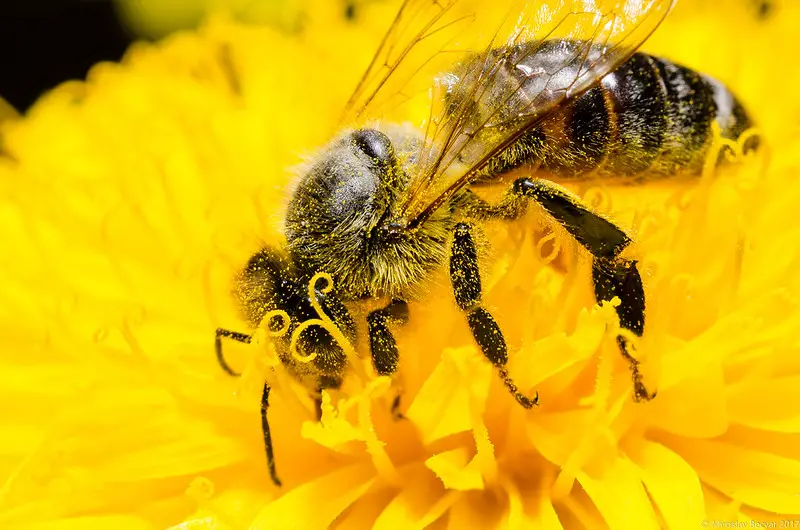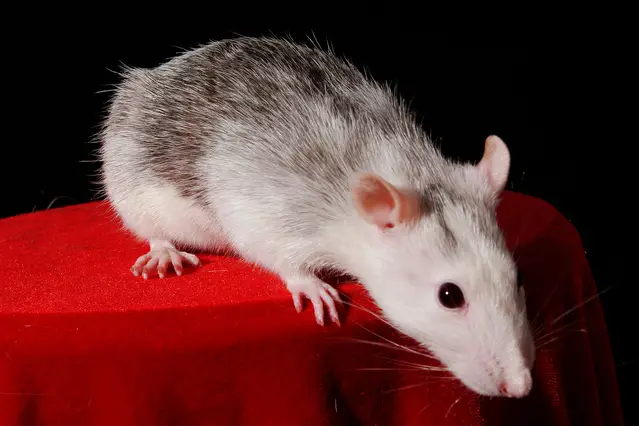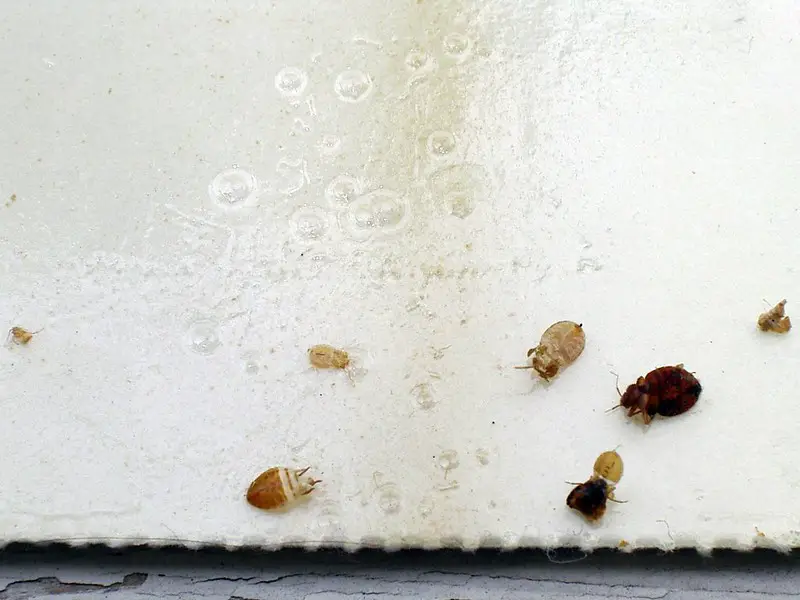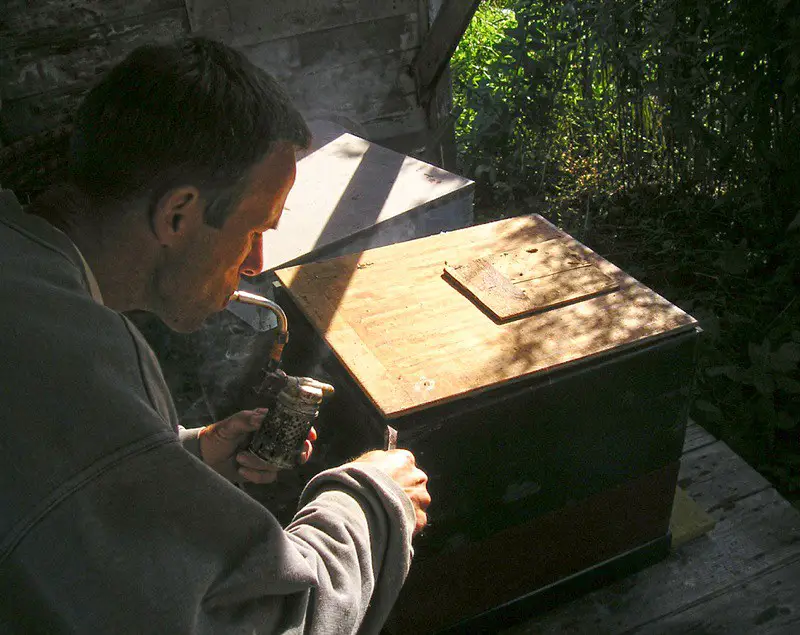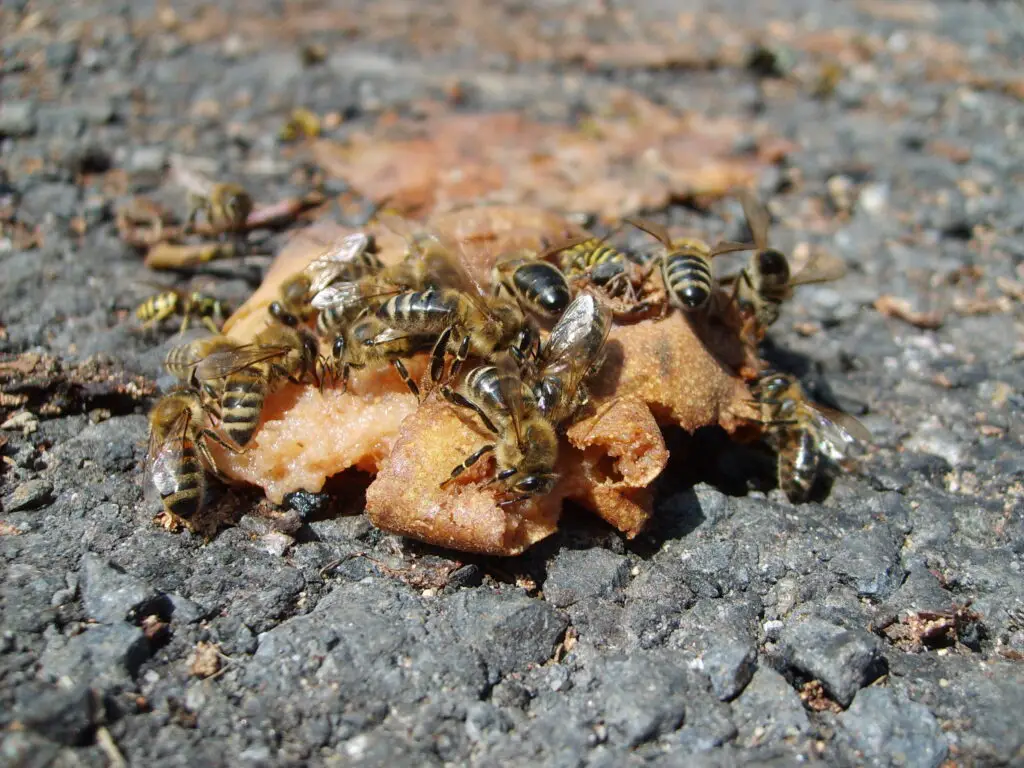What scent keeps bees away?
While bees are attracted to certain sugary and flowery scents, they are also repelled by others. If you know bees, you know that some scents are effective for keeping bees away. You need to know what scents make for an excellent bee deterrent and apply it at the right time and place.
Simply incorporate scents that humans find pleasant, and bees find repulsive. Some of these off-putting fragrances are peppermint, spearmint, eucalyptus, and thyme. Then, add about twenty drops of essential oil containing one or all of the above herbs to a bottle and spray it on areas with bee activity or anywhere else you plan on spending time with friends and family.
Bees also distaste for lime, lemon, lavender oil, citronella oil, olive oil, and vegetable oil. These are all-natural topical defenses you can apply to your skin to keep bees away. Unlike some other flying insects, bees are not attracted to the scent of humans; they are just curious by nature. Once a bee gets a waft of any of the scents above, it will head the other direction.
Another repellent you can use to deter bees from flocking to patio furniture and poolside plants is dryer sheets. Dryer sheets will leave your yard bee-free and smelling fresh.
How do you repel bees naturally?
One of the stinkiest ways to repel bees naturally is to use garlic powder. Garlic will discourage bees from getting near your home or yard. You shouldn’t sprinkle garlic powder on bees because you might kill them. Or you could simply burn citronella candles to repel bees naturally.
Cinnamon is one spice bees can live without. They hate the scent of this fragrant spice. So sprinkle ground cinnamon in areas of bee activity to keep them away. This natural bee repellent will prevent bees from hovering around.
Bees and many pests also dislike the smell of peppermint. You could spray some peppermint essential oil and water mixture in areas of bee activity. For example, if you had too many bees around your pool furniture, spray some peppermint bee repellent on the pool or patio furniture.
Does vinegar keep bees away?
Vinegar will keep bees away. It is one of the most effective natural bee repellents. Please a few containers with vinegar in areas of your yard with excessive bee activity and watch them vanish. If you see some bees trying to nest in some areas in your yard, wipe down the structures with a vinegar and water solution.
What is a natural bee repellent for skin?
You can use a natural bee repellent for your skin to drive away bees without dangerous chemicals, naturally. In addition, using natural repellent won’t harm or kill the bees, which is important since they are essential to our environment.
To make your natural bee repellent for the skin, use a few drops of peppermint or lavender oil on your skin to get all the benefits. The same bee repellent can also be sprayed as a natural insect repellent on outdoor furniture. Be sure to wash your hands and skin after you are done working in the garden or backyard to avoid any skin irritation.
What is the best bee repellent for decks?
The best bee repellents for decks are scent-based. A scent-based deterrent is the easiest way to repel bees from decks. It’s also the easiest be repellent for decks. Offputting fragrances like thyme, peppermint, spearmint, citronella and eucalyptus make for a great bee repellent spray for outdoors.
It’s a topical defense to keep bees away, and it works well for decks. You can add thirty drops of essential oils of any of the above scents, mix it with twelve ounces of water and spray it on outdoor furniture, floaties, and pool toys. Once a bee gets a whiff of your homemade bee repellent, it will buzz off.
Homemade, non-toxic bee repellents allow you to grow with less fear of being bitten and won’t harm bees, your garden, or other creatures when used correctly and combined with preventative measures to help keep bees and other pests away from your home and property. Natural insect repellents use chemical-free ingredients to help repel bees and other pests.
Best of all, these home bee repellents also help to safely repel other pests such as cockroaches, bed bugs, mosquitoes, wasps and flies. Alternatively, place distilled vinegar around your home to sweep out birdhouses and hummingbird feeders after they have been emptied to keep the bees away.
The smell of garlic repels bees, so sprinkling garlic powder on their nests or other places they frequently visit will scare them away, but remember that applying garlic powder directly to bees can be fatal. The strange thing is that bees hate the smell of cinnamon and mothballs, so put them where bees can build nests.
You can make a DIY bee repellent spray using a drop of peppermint oil, tea tree oil or cinnamon oil (or all three) with a cup of unscented baby shampoo, or you can spray a few drops of peppermint oil over a spray bottle of water and spray all over your house or apply drops of pure peppermint oil near areas where bees move to guard or scare them away.
Chopped garlic, a natural bee repellent
Chopping garlic and soaking it for a few days in water makes it a great bee repellent when placed around plants or in areas frequented by people outside.
As always, if you want to keep your garden, home, or even yourself away from certain parts of the bees, make sure to add enough peppermint oil to your household insect repellent to smell when spraying. Peppermint essential oil is one of the most common essential oils used daily by humans. What’s better is that bees don’t like this smell.
To use peppermint essential oil effectively, soak pieces of cotton in the cake and then place it where bees should not get into them. Peppermint oil itself has been shown to repel wasps and remove bees, or you can use a combination of clove, geranium and lemongrass essential oils as natural pest control or coat them on exposed areas of the home where wasps can build nests (under eaves).
The water from your home will evaporate bee repellent, but the smells of peppermint, cinnamon and cayenne pepper will be left behind to prevent insects from spending time in these areas, and the remaining sticky soap will stick to them, and they will fight. Remember that your mixture is repulsive and not-killing, so if you walk up to a bee and spray it with something it hates, the bee or wasp may be angry and follow you before they decide to leave the garden.
After turning on the grill, the last thing anyone wants to see is bees and wasps buzzing around your guests. This is why it is important to find an effective natural bee repellent. If your area is prone to bees, hornets and wasps, as well as repellents, you can take an inventory of your garden and its plants. If you have scented flowers and plants that attract bees, you might want to rethink where and what you plant.
If you want a natural bee repellent, take action and plant mint in the garden can help the group discourage bees from choosing your home to create a beehive. Both methods will release bad odors for the bees and prevent them from entering your area. The smells of some of the popular essential oils are excellent repellent, which you can find in oily form or grow on your own.
When it comes to repelling bees, essential oils are a natural way to repel bees. Bees and many other insects are repelled by essential oils such as peppermint or tea tree oil. Then use lemongrass oil by diluting it and soaking it with cotton swabs. Or use an essential oil repellent spray with lemongrass as one of the main ingredients.
Many bees and wasps are attracted by the nectar they find in flowers or hummingbird feeders, so they emit an unpleasant smell. Although some chemicals can easily kill bees to get rid of them, you may not want them to die if they are bees.
Bees don’t like the smell of garlic, so to dissuade them from visiting near your home, sprinkle garlic powder near where you saw them—chopped garlic. If you chop the garlic and soak it for a few days in water, it will be a great bee repeller if you put it around plants or places where people hang out in the open air. Vanilla Blend Bees may be more attracted to your skin than your home or garden.
If the problem is mostly outside the home, try to find surfaces that the mixture has not damaged, but the smells of peppermint, cinnamon and cayenne pepper will be left behind so that insects don’t spend time in these areas, and the remaining sticky soap will stick to them, and they will fight. Another organic method for killing bees is to fill a spray bottle with a solution of half water and half mild dishwashing detergent.
To use peppermint essential oil effectively, soak pieces of cotton in the cake and then put it in areas where bees shouldn’t get in or get an essential oil repellent spray.
Using cotton balls to repel bees is one way to extend its lifespan, but it’s best to use them in small areas. You can also place bee-repellent plants in and around your home, including mint and lemongrass. Oddly enough, bees hate the smell of cinnamon and mothballs, so you can place them in places where the bees can build a nest. Finally, you can make a DIY bee repellent spray with a drop of peppermint oil.
This is just one of the reasons we love this bee repellent in our home. Since we now know that bees repel ingredients such as peppermint oil, it is clear that pure peppermint essential oil is good for repelling bees and bees.
If you have fragrant flowers and plants that attract bees, you may want to rethink what you plant in your garden to keep bees, yellow jackets and wasps out of your outdoor dining experience. Especially if someone in your family is allergic to bees and wasp stings, making homemade pest control products is very important to keep them away from you and your loved ones.
This is why it is important to find an effective natural bee repellent, especially as the summer approaches. If you’ve spotted these unwanted pests around your home and want to stay away or want to enjoy a picnic or other outdoor activity without worrying about flocks of bees taking over the party, these homemade bee insect tips and recipes might help.
Beekeepers produce honey and give the bees a safe home, plus they can take the entire nest to be replaced if the smell of garlic deters them, so sprinkling garlic powder around their nests or other places they often visit will scare them away, but keep in mind that direct application of the powder to bees can be fatal.
There are many ways to keep bees at bay, and lighting these candles nearby the nest and around the house or garden will encourage the bees to move. If active infestation is present, contact your local exterminator to learn about safe and effective treatments for bee control. However, if you’re looking for something more comfortable to keep bees at bay, planting natural bee-repellent plants around your house is a great start over professional pest control as it repels not only bees but other insects as well.
